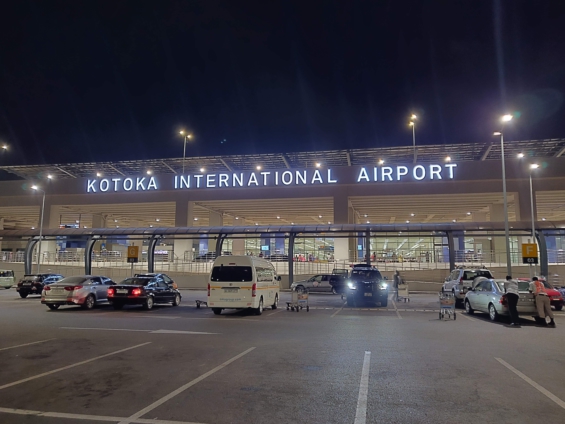If Government Fails to Back Emission Levy With Scientific Terms, We Will kick Against it - AGI
The Association of Ghana Industries (AGI) has taken a firm stance against the implementation of the Emission Levy for manufacturing firms in Ghana, indicating its readiness to resort to legal action to prevent its enforcement.
President of the AGI, Dr. Humphrey Ayim-Darke, emphasized that unless the government provides scientific justifications regarding the measurement of environmental emissions in various industries and the levy's impact, the AGI will challenge its implementation through legal means.
Related To This: Revoke Carbon Emissions Levy - FABAG to Gov't
Dr. Ayim-Darke articulated the AGI's position during an appearance on PM EXPRESS BUSINESS EDITION on February 8, 2024, hosted by George Wiafe. He underscored the importance of scientific backing for the levy and cautioned that in the absence of such justifications, the AGI will seek legal interpretations and interventions to safeguard the interests of its members.
The AGI President raised critical questions about the methodology of measuring emissions, citing the complexities involved in assessing diverse industrial operations, such as cement production quantities. Highlighting the lack of consensus between industry standards and government mandates, Dr. Ayim-Darke reiterated the AGI's commitment to engaging in constructive dialogues with the government to address these concerns effectively.
The government introduced the Emissions Levy Act, 2023 (Act 1112) to enhance revenue generation and elevate Ghana's tax-to-GDP ratio. The legislation imposes a fixed levy of GH¢100 per tonne on carbon dioxide equivalent emissions from electricity producers.
Related To This: Revoke Carbon Emissions Levy - FABAG to Gov't
Dr. Ayim-Darke articulated the AGI's position during an appearance on PM EXPRESS BUSINESS EDITION on February 8, 2024, hosted by George Wiafe. He underscored the importance of scientific backing for the levy and cautioned that in the absence of such justifications, the AGI will seek legal interpretations and interventions to safeguard the interests of its members.
The AGI President raised critical questions about the methodology of measuring emissions, citing the complexities involved in assessing diverse industrial operations, such as cement production quantities. Highlighting the lack of consensus between industry standards and government mandates, Dr. Ayim-Darke reiterated the AGI's commitment to engaging in constructive dialogues with the government to address these concerns effectively.
The government introduced the Emissions Levy Act, 2023 (Act 1112) to enhance revenue generation and elevate Ghana's tax-to-GDP ratio. The legislation imposes a fixed levy of GH¢100 per tonne on carbon dioxide equivalent emissions from electricity producers.
Despite parliamentary approval and presidential assent, the implementation of the levy by the Ghana Revenue Authority has not yet commenced, prompting uncertainties and reactions from industry stakeholders like the AGI.
In addition to contesting the emissions levy, Dr. Ayim-Darke advocated for government policies aimed at supporting local industries by restricting imports, aligning with global practices that prioritize indigenous industrial sectors. He emphasized the crucial role of stabilizing the Ghanaian currency and highlighted the positive impact of securing IMF programs in attracting investments and fostering partnerships for local industries.
Shop With Us: https://www.etsy.com/shop/SokoMalls
In addition to contesting the emissions levy, Dr. Ayim-Darke advocated for government policies aimed at supporting local industries by restricting imports, aligning with global practices that prioritize indigenous industrial sectors. He emphasized the crucial role of stabilizing the Ghanaian currency and highlighted the positive impact of securing IMF programs in attracting investments and fostering partnerships for local industries.
Shop With Us: https://www.etsy.com/shop/SokoMalls





Comments
Post a Comment